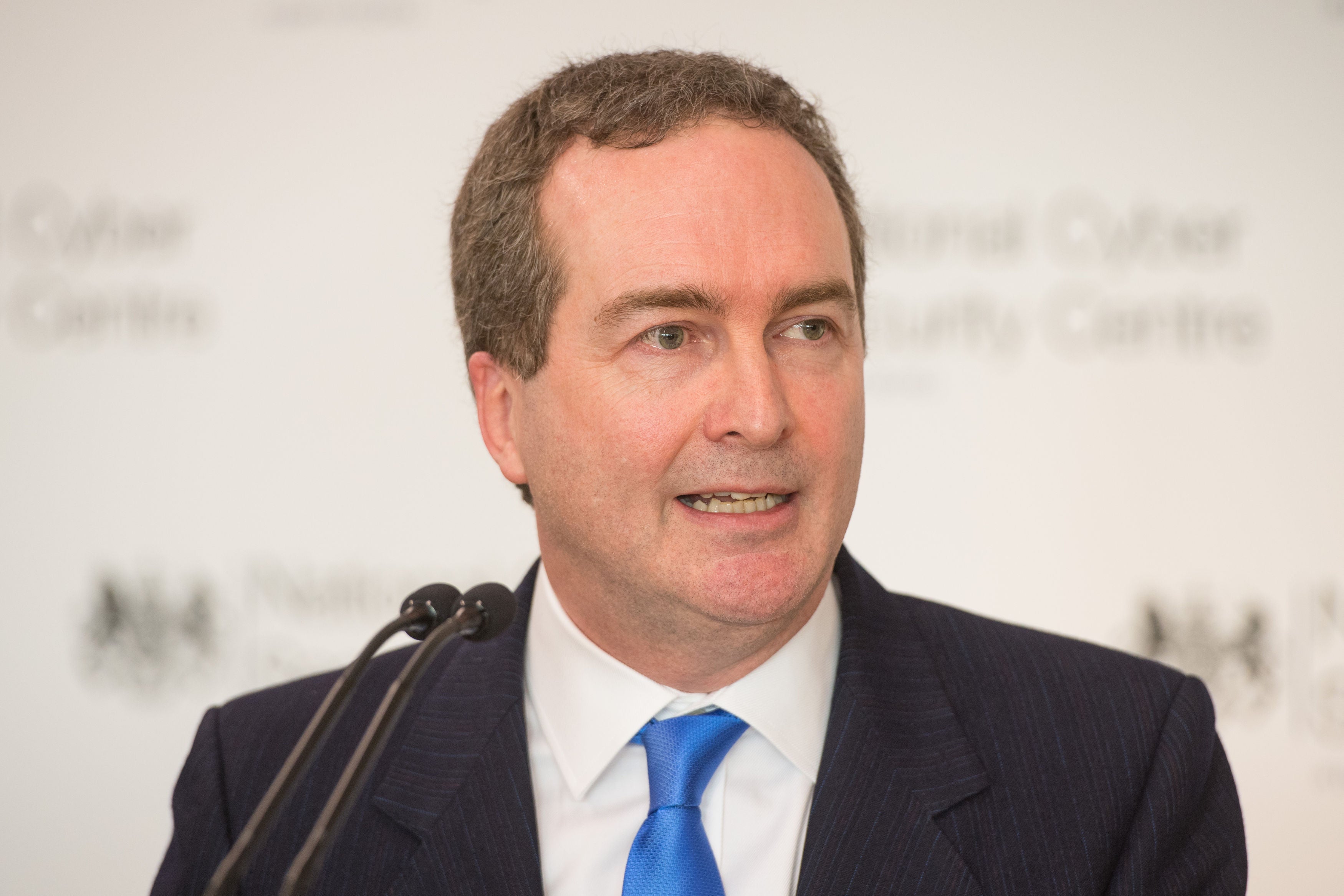Former spy chiefs should not become media ‘talking heads’ – report
The Intelligence and Security Committee warned it risked divulging secrets.

Your support helps us to tell the story
From reproductive rights to climate change to Big Tech, The Independent is on the ground when the story is developing. Whether it's investigating the financials of Elon Musk's pro-Trump PAC or producing our latest documentary, 'The A Word', which shines a light on the American women fighting for reproductive rights, we know how important it is to parse out the facts from the messaging.
At such a critical moment in US history, we need reporters on the ground. Your donation allows us to keep sending journalists to speak to both sides of the story.
The Independent is trusted by Americans across the entire political spectrum. And unlike many other quality news outlets, we choose not to lock Americans out of our reporting and analysis with paywalls. We believe quality journalism should be available to everyone, paid for by those who can afford it.
Your support makes all the difference.Former spy chiefs should not be able to foster lucrative second careers as “talking heads” and divulge secrets without sanctions, Parliament’s intelligence watchdog has said.
The Intelligence and Security Committee (ICS) released its annual report on Friday – but the document covered two years due to delays in appointing members after the 2019 general election.
The committee, which monitors the work of the UK’s spy agencies and is cleared to handle the most highly classified information, said it sent “entirely the wrong message” for former intelligence staff to be able to reveal operational secrets in the media, and took aim at a former director of GCHQ.
The report revealed how committee members became aware of the issue in May 2019, when former GCHQ boss Robert Hannigan appeared on the Channel 4 documentary The Hunt For Jihadi John.
“In that interview he provided operational details as to how the agencies identified (Mohammed) Emwazi,” the committee said.
And members were so concerned they wrote to then cabinet secretary Sir Mark Sedwill “asking whether the individual had sought clearance to appear on the programme, and what action was being taken in response to an apparent breach of the Official Secrets Act”.
Sir Mark said the appearance was “not endorsed by the Government” and that Mr Hannigan had been written to, in order to “remind him of his ongoing responsibility to safeguard information”.
But the committee said it was “very surprising… knowing how seriously the staff within the agencies take their duty to safeguard sensitive information, that a previous head of one of those organisations can appear on television and divulge those secrets and yet no substantive action can be taken”.
It said: “It sends entirely the wrong message to those who may be tempted to breach those obligations themselves, and to those who risk their lives to protect them.
“The question of the obligations of former members of the intelligence community – particularly when they seek to build a lucrative career as a commentator on such issues or indeed a lucrative second career in the private sector which utilises the knowledge they have gained – is one which the committee considers requires further thought and scrutiny since it appears to be possible to breach the current arrangements with no sanctions resulting.”
The committee also said it had been “misled” over the circumstances in which Mr Hannigan – who is now chairman of BlueVoyant International, a global cybersecurity services firm, and also holds advisory roles – left GCHQ.
Mr Hannigan stood down as director of the spy agency in 2017 after less than three years in the post, citing “family reasons” – this was the explanation also given to the committee.
But in February 2019, The Mail on Sunday revealed his departure followed the discovery that in 2013, while working as director general of defence and intelligence at the Foreign and Commonwealth Office (FCO), he had given a character reference on behalf of a Catholic priest charged with possessing child pornography.
The priest, who was said to have been a long-standing family friend of Mr Hannigan, was given a non-custodial sentence and went on to offend again, the paper said.
The intelligence chief’s involvement in the case was said to have been discovered during a major investigation into online chatrooms by the National Crime Agency.
Given the investigative powers with which we trust our intelligence community, it is imperative that they are above all suspicion
At the time, Mr Hannigan told The Mail the priest had been a “close family friend” for 20 years and they had submitted a character reference to the court “in good faith” after he pleaded guilty to the offences.
“His subsequent criminal actions appalled us and have shown that our judgment was completely wrong,” he added.
“When I later became director of GCHQ, all the correct steps were taken in relation to my involvement in this case and this was verified by Government lawyers.
“This is a personal family matter. We will not be making further comment.”
But the ICS report said the committee had been misled at the time, and was then later told “a limited number of staff in GCHQ, Cabinet Office Government Legal Department (GLD) and the National Crime Agency (NCA) were aware of the association between the director and Father Higgins, and ‘it would not have been appropriate to share information outside this group, including with the ISC, during the investigation’.”
The report said: “While recognising that there was a criminal investigation under way, the committee considers nevertheless that where the head of an intelligence agency steps down unexpectedly, then as the body that is entrusted with oversight of the intelligence community, and ensuring their probity, then this committee must be fully informed of the circumstances.”
It added: “Given the investigative powers with which we trust our intelligence community, it is imperative that they are above all suspicion.”
Mr Hannigan has been contacted for comment.